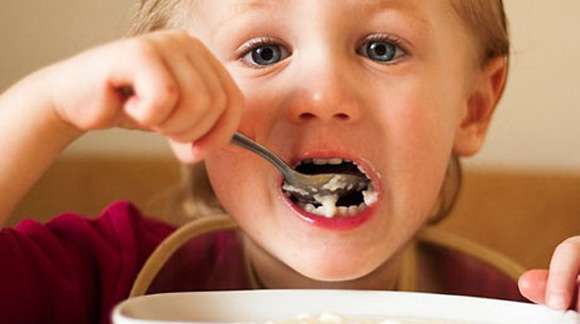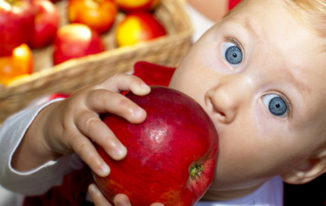
Choosing the right meals and snacks for your toddler can get pretty tricky. There are times when you just end up choosing one that’s readily available.
There’s really nothing wrong with that as long as what is available is something that’s healthy and nutritious.
Unfortunately, the food that’s readily available for your toddler is not all that healthy and nutritious. There are times when you just end up grabbing a biscuit. If it’s not a biscuit, it may just be a cookie that’s loaded with lots and lots of sugar.
Snacks are just as important as the three main meals. You really have to think about the kind of snacks to give to our toddler.
You have to be careful in choosing your toddler’s snacks. Here’s what healthychildren.org has to say about this:
Many children need a morning and afternoon snack, which should be timed so they won’t interfere with lunch or dinner. Snacks should include a satisfying balance of healthful foods.
Here are the 10 superfoods that you should feed your toddler as shared by Rachel Beller, R.D.:
10. Cabbage. It has a mild flavor and crunch that kids tend to like better than the usual salad greens. And cruciferous veggies such as cabbage, broccoli and kale contain phytonutrients known to lower the risk for many types of cancer, as well as improve digestion. It also helps clear harmful toxins from the body by triggering the release of enzymes whose job it is to whisk them out
9. Low-Fat Greek Yogurt. It contains healthy bacteria known to boost immunity and aid digestion, and has two to three times the amount of protein and less sugar than regular yogurt.
8. Tomatoes. Cooking tomatoes makes them even healthier because the heat releases the lycopene. Hint: Pairing tomato-y foods with a good fat, like olive oil, helps the body absorb more.
7. Tofu. Whole soy foods are an excellent source of lean protein and have potent anti-cancer benefits,” says Beller. “Tofu is great for young girls because it has a protective effect as their bodies and breast tissue are developing—which lasts into adulthood.”
6. Blueberries. They’ve ranked among the healthiest fruits for years (go, antioxidants!). Now research suggests that in addition to protecting against heart disease and diabetes and improving brain function, blueberries may also help reduce visceral “toxic” belly fat—a type of fat that has been linked to obesity and metabolic syndrome.
5. Milk. Protein helps build brain tissue, while milk’s calcium keeps kids’ bones and teeth strong.
4. Nuts. Nuts are made up of healthy fats, which kids need for growth and development, as well as for heart health.
3. Fruit. To reap the nutritional benefits, aim to eat a variety of fruits, like berries, melon, kiwifruit and oranges.
2. Oatmeal. Research shows that kids who eat oatmeal are better able to concentrate and pay attention in school.
1. Eggs. Eating protein at breakfast helps kids feel satisfied longer (no mid-morning hunger pangs).
The challenge here is how to get your kids to eat nutritious foods for meals and snacks. That’s something you should really work on.
Your best bet is to start now. Introducing nutritious foods to your toddler now will help them develop better eating habits, as they grow older. According to an article on health.usnews.com:
Though it may not always be easy, helping young children develop healthy eating habits is worth the effort, experts say.
You can find more healthy food and snack options here. The good news is that you have more than just 10 vitamin-packed foods to choose from. With a long list of healthy food choices, you wouldn’t have to end up feeding your toddler cookies and junk food.
What do you usually feed your toddler for meals or snacks?









